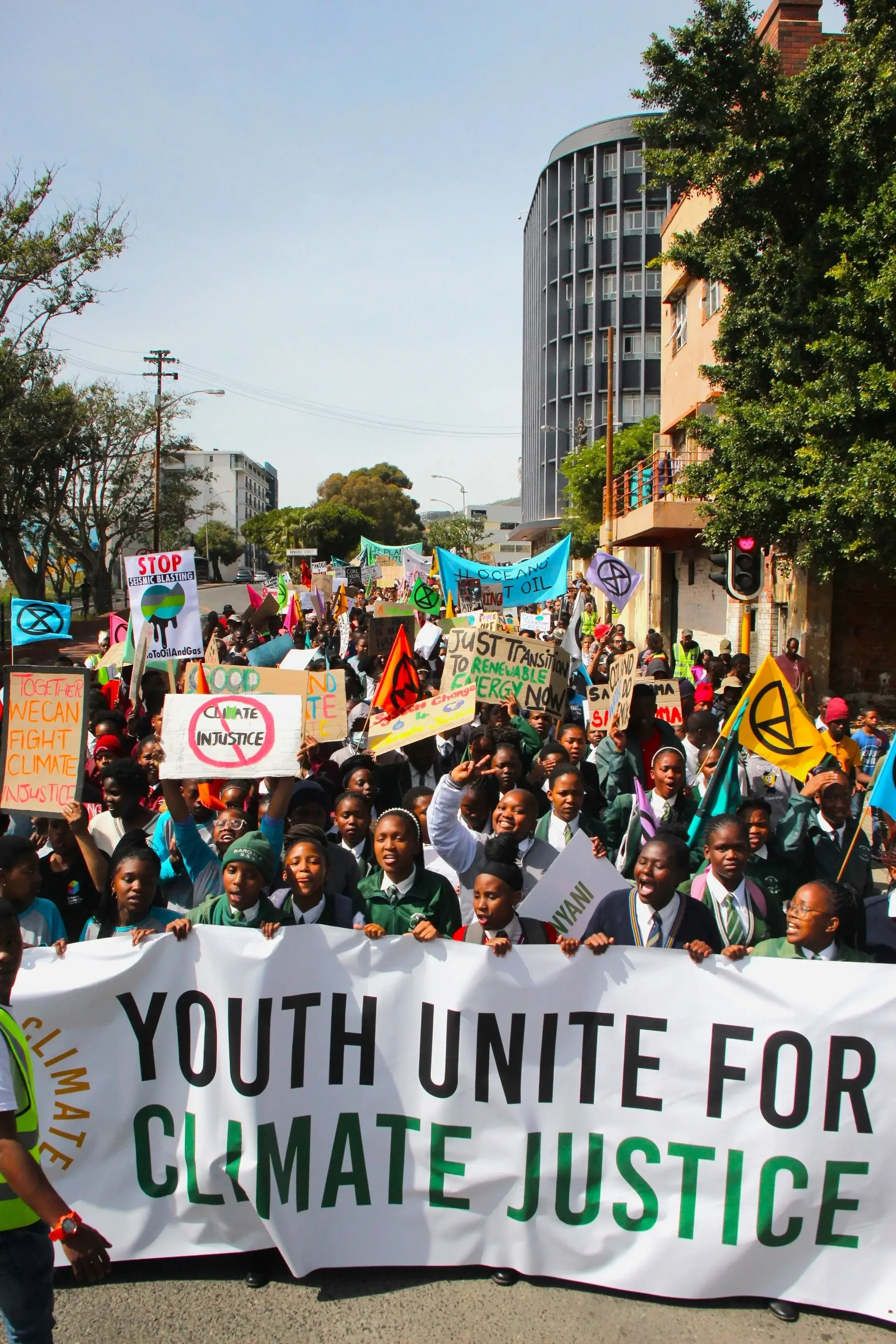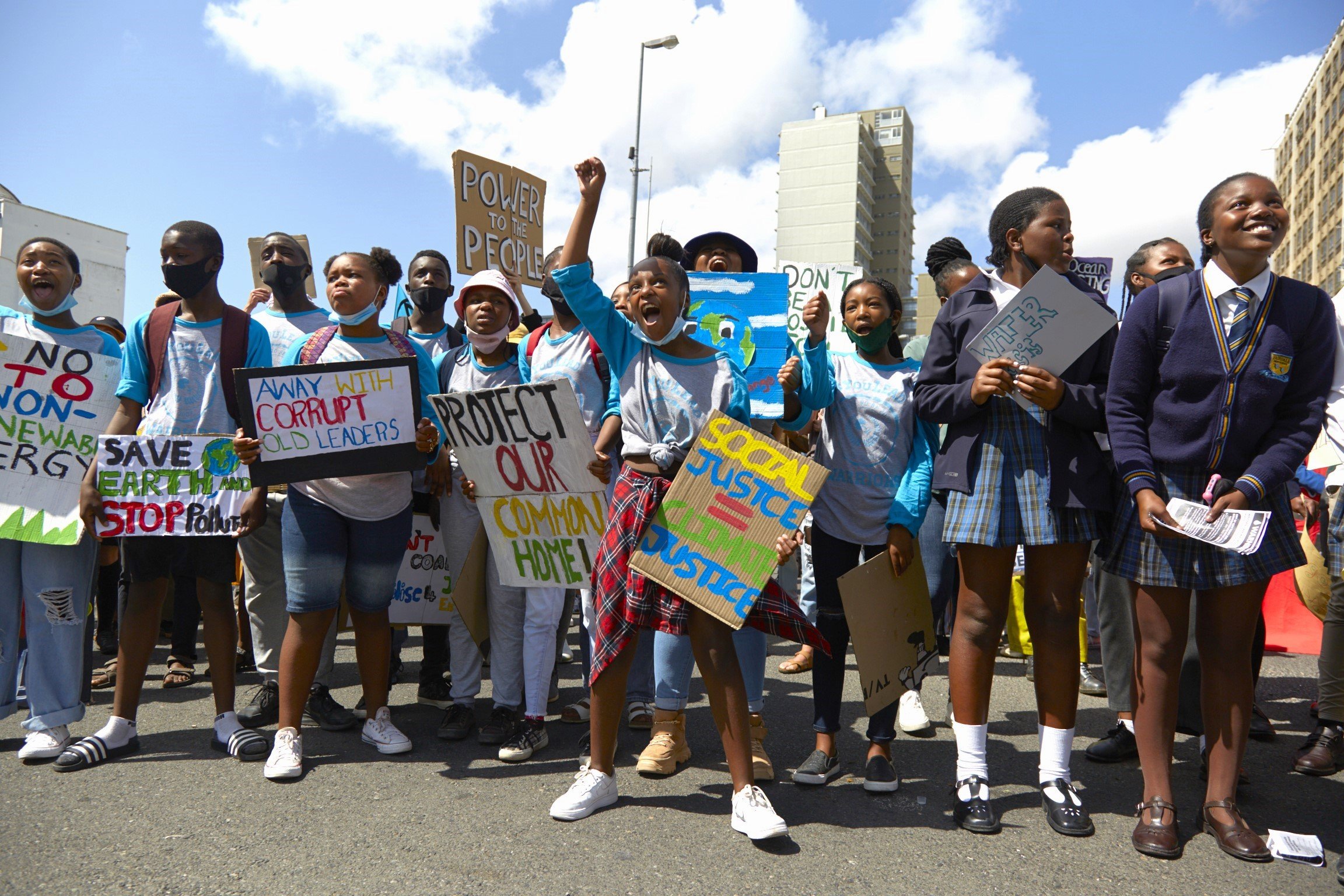

Together we are calling for system change
Join us as we take action on Thursday, 21 March 2024, in Cape Town, South Africa, for our next March for System Change!
Youth, civil society, and concerned citizens from across Cape Town and surrounding towns and settlements will come together to call for deep systemic change — for people, planet, and future generations.
Who: All Welcome
When: Thursday, 21 March 2024
Meeting point: 10 Darling St Parking, Cape Town
Meeting time: 10:00-13:30 (SAST)
Why do we march?
In line with Human Rights Day 2024, we will urge leaders to urgently address the interlinking injustices we face, from energy, water, food, land, and housing, an end to gender-based violence, and a call for global solidarity.
In September 2022, the first March for System Change took place in Cape Town. The march aimed to address the need for energy, water, housing and food access for all to address the interlinking crises of income inequality, climate crisis, water and food insecurity.
In March 2023, in line with Human Rights Day and in solidarity with the global climate strike, we continued with that intention and marched for system change with the theme of Don’t Gas Africa, in collaboration with the Don’t Gas Africa campaign.
Our demands
Energy Justice: No new fossil fuels - coal, oil or gas! No new nuclear power! We want socially-owned renewables through a just energy transition instead. Energy poverty, load shedding and environmental concerns must be addressed by SA’s new draft Integrated Resources Plan and all future energy policies.
Water Justice: Uphold the fact that water is a human right! End corporate water exploitation and prioritize equitable access, sustainability, justice, anti-corruption and community-led decision making in water management and governance.
Food Justice: Support policies that promote food sovereignty, allowing communities to control their food systems. Call for measures to reduce food waste and loss throughout the food supply chain. Protect, Invest in and provide support for local food systems, including regenerative farms, farmers markets, community gardens, and urban agriculture.
Spatial Justice: Develop affordable, safe, sustainable and climate-resilient housing and transport options for all. Prioritize policies that ensure equitable land redistribution and security of tenure for residents in informal settlements and vulnerable housing situations. Communities must have access to basic services, and their voices and leadership should form part of the planning and implementation of land and housing policies.
Address Gender Based Violence: Establish systems of security and accountability for women and marginalized genders who are affected by gender based violence (GBV). This must extend to gender-sensitive climate adaptation strategies that enable resilience-building efforts and address the underlying inequalities exacerbating GBV in the context of environmental degradation and climate disasters.
Global Solidarity: SA’s national and foreign policies must show solidarity and committed action to people across Africa and with those facing genocide in Palestine and Congo. That means prioritizing an end to Xenophobia, being willing to defend the rights of people in the Congo and other African nations, and ending all cultural, diplomatic and economic ties with Israel while continuing to call for an immediate and lasting ceasefire.



















